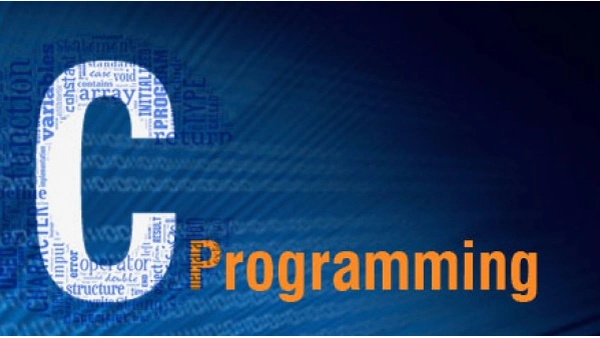C programming is a powerful and versatile language widely regarded as the foundation of modern software development. Its efficiency, simplicity, and close-to-hardware capabilities make it a preferred choice for creating system software, embedded systems, and performance-critical applications. Whether you’re a beginner or an aspiring software developer, understanding the basics of C programming is essential for mastering more advanced languages like C#.
In this guide, we’ll explore the essential concepts of C programming, how they translate into real-world applications, and their relevance in modern programming paradigms like C# channels, producer-consumer models, and JWT tokens.
Why Learn C Programming?
C is a foundational language that forms the building block for many other programming languages, including C++, C#, and Java. Learning C gives you deep insights into core programming concepts, memory management, and efficient coding practices. Moreover, many advanced tools, frameworks, and libraries have their roots in C, making it invaluable for developers pursuing careers in software and systems development.
For those aiming to work with modern languages like C#, understanding C programming enables you to grasp advanced concepts such as C# channels, producer-consumer workflows, and secure authentication with JWT tokens in C#.
Basic Concepts of C Programming
1. Variables and Data Types
In C, every variable must have a declared data type, such as int, float, char, or double. These types determine the size and type of data that can be stored.
Example:
int age = 25;
char initial = 'A';
float pi = 3.14;
2. Control Structures
Control structures like if, else, for, and while are fundamental for decision-making and looping in C.
Example:
for (int i = 0; i < 5; i++) {
printf("Iteration: %d\n", i);
}
3. Pointers and Memory Management
Pointers allow you to directly access memory addresses, giving C its low-level power. This concept is crucial for understanding dynamic memory allocation and efficient program design.
Example:
int num = 10;
int *ptr = #
printf("Value: %d, Address: %p\n", *ptr, ptr);
4. Functions
Functions enable code modularity by encapsulating logic into reusable blocks. This is particularly useful for creating clean and maintainable programs.
Example:
int add(int a, int b) {
return a + b;
}
printf("Sum: %d\n", add(5, 3));
As you progress in programming, you’ll encounter advanced concepts that build on the fundamentals of C. These topics often align with features of higher-level languages like C#.
Understanding Channels in C#
In modern applications, C# channels are used for concurrent programming, enabling threads to communicate efficiently. The foundation for these concepts lies in understanding how C handles memory and processes.
Example of a C# producer-consumer model:
Channel<int> channel = Channel.CreateUnbounded<int>();
Task.Run(async () => {
await channel.Writer.WriteAsync(1);
channel.Writer.Complete();
});
Task.Run(async () => {
int item = await channel.Reader.ReadAsync();
Console.WriteLine(item);
});
JWT Tokens in C# for Authentication
While C focuses on low-level programming, modern systems prioritize secure user authentication using JWT tokens in C#. This advanced topic builds on basic programming principles like string manipulation and data handling.
Example of creating a JWT token in C#:
var tokenHandler = new JwtSecurityTokenHandler();
var key = Encoding.ASCII.GetBytes("your_secret_key");
var tokenDescriptor = new SecurityTokenDescriptor {
Subject = new ClaimsIdentity(new[] { new Claim("id", "123") }),
Expires = DateTime.UtcNow.AddDays(7),
SigningCredentials = new SigningCredentials(new SymmetricSecurityKey(key), SecurityAlgorithms.HmacSha256Signature)
};
var token = tokenHandler.CreateToken(tokenDescriptor);
Console.WriteLine(tokenHandler.WriteToken(token));
Benefits of Learning C Programming
1. A Strong Foundation for Advanced Programming
Mastering C provides the skills needed to excel in other languages like C++, Python, and C#. For instance, understanding how to manage memory in C translates directly into handling C# channels or optimizing producer-consumer models.
2. Efficient and Performance-Oriented Coding
C teaches you how to write code that directly interacts with hardware, optimizing speed and resource usage. This makes it invaluable for system-level programming.
3. Versatility in Career Opportunities
Whether you’re building embedded systems, high-performance applications, or transitioning to languages like C#, knowledge of C opens doors to a wide range of software development roles.
Practical Tips for Learning C Programming
- Start with Small Programs: Begin with simple projects like a calculator or file reader to understand the basics.
- Master Pointers: Understanding pointers is crucial for dynamic memory management and advanced C concepts.
- Experiment with C#: Apply your C knowledge to learn modern paradigms like C# producer-consumer models or JWT tokens for authentication.
- Debug Your Code: Use debugging tools like GDB to identify and fix issues efficiently.
Transitioning from C to C#
C programming equips developers with a deep understanding of programming fundamentals, making the transition to advanced languages like C# seamless. Concepts such as memory management and modular programming in C are directly applicable to building modern applications using C# channels or securing systems with JWT tokens in C#.
For example:
- C’s Pointers → Translate to efficient memory handling in C#.
- Control Structures → Enhance your understanding of concurrent programming using producer-consumer models in C#.
- Modular Programming → Easily adapt to reusable components in C# and other object-oriented languages.
Conclusion
C programming is more than just a foundational language; it’s a gateway to mastering software development. By learning C, you develop a deep understanding of how computers work, enabling you to write efficient and scalable code. This knowledge translates directly into working with modern languages like C#, where you can explore concepts like channels, producer-consumer models, and secure authentication using JWT tokens.
Whether you’re a beginner aiming to understand basic programming or a developer transitioning to advanced languages, C programming is the perfect starting point to enhance your skills and open doors to exciting opportunities in the tech world.



































